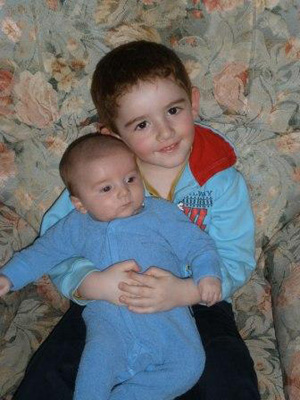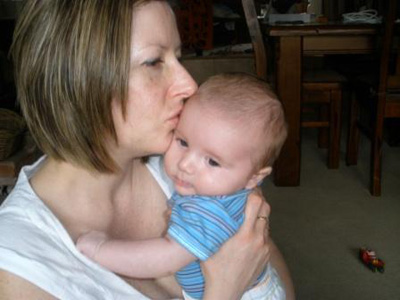Kim Potter IVF Treatments Interview

Kim Potter IVF Treatments Interview
Thousands of Australian women are taking unnecessarily high doses of fertility hormones leading to needless emotional, physical, and financial costs, according to a leading fertility expert.In the wake of a major fertility conference in Adelaide Dr David Knight of Sydney's Medica IVF, said that many IVF clinics are "stuck in the past" using regimens that mandate large hormone doses, daily blood tests and emotionally draining daily patient updates. "An internationally recognised approach to fertility treatment, known as Mild Ovarian Stimulation (MOS), which combines significantly fewer hormones with fewer blood tests and patient check-ups, is largely being ignored by traditional IVF clinics," Dr Knight said.
"Mild Ovarian Stimulation is a smarter, safer and far simpler way to help women fall pregnant. It is also less expensive and results in less emotional drain," he said.
Dr Knight also warned that traditional forms of IVF practiced by many clinics are often associated with a heightened risk of side effects, including multiple pregnancies and the risk of developing a condition associated with abdominal swelling and pain, and shortness of breath.
"This approach is antiquated and excessive in every respect. It also fails to recognise the emotional rollercoaster that many couples experience," said Dr Knight.
While MOS and more traditional techniques have resulted in similar pregnancy rates (31 percent in MOS compared with 29 per cent in standard IVF), MOS requires fewer highquality eggs and is therefore less invasive. The average treatment cycle is also approximately two weeks shorter.
Dr Knight says MOS represents a new era in 'patient friendly' fertility treatment. "People seeking IVF need to ask their doctor if they are receiving the lowest dose of hormones that will still give them the best chance at conceiving," he said.
"Fewer phone calls, fewer blood tests, fewer visits to the clinic and far fewer hormones all add up to a better experience couples, as well as the same chance of having a baby," said Dr Knight.
For further information visit: www.bhealthy.net.au

Interview with Kim Potter
Kim Potter lives in Wilton, Sydney with her husband David and their two sons, 4 year old Braydon and 14 week old Kyan.Question: What are the two different IVF treatments you tried?
Kim Potter: I had the standard IVF treatment for my first son, Braydon who is now 4. I conceived my second child, Kyan, using the Mild Ovarian Stimulation (MOS) IVF treatment.
Question: What is the difference between the two treatments you tried?
Kim Potter: I used standard IVF treatment first and I miscarried at nine weeks, I had to wait over a month and then went through the standard IVF treatment again and I fell pregnant with my first child, Braydon. From memory, the standard IVF treatment cycle was longer than a standard month. Whereas the MOS cycle is a standard four weeks.
Question: What is Mild Ovarian Stimulation (MOS)?
Kim Potter: Mild Ovarian Stimulation basically is a different set of drugs and they are a lot gentler on your body which means less side affects and you don't feel as sick, as moody and basically yucky. With the MOS I don't remember having many blood tests or ultrasounds whereas I did with the standard IVF treatment. With the standard IVF I was in every couple of days having blood tests or ultrasounds to check the follicles on your ovaries.
With the MOS it was a lot easier because you didn't really have to do anything but you got the same results.
Question: What success did you and your husband, David, have with Mild Ovarian Stimulation (MOS)?
Kim Potter: With the MOS we went through the process four times and on the fourth time I fell pregnant with my second child Kyan.
Question: Why is MOS IVF treatment a lot less of an emotional burden?
Kim Potter: Emotionally with the standard treatment you are in there constantly having bloodtests or ultrasounds and things like that. With the MOS I think I had one ultrasound. Basically with the MOS I began the drugs and after a week to week an a half I had an ultrasound to check that there were follicles on my ovaries. Then, half a week later, two weeks after I began, I was booked in for day-surgery, which took the eggs out. Overnight they see if I have any eggs which fertilise with sperm and if you are successful they ring you to let you know and how many, after that you don't hear from them for about five days. Next you go into surgery again, for the transfer and a week after that you find out if you are pregnant, or not.
The difference to the standard IVF is that if you had eggs that fertilised they'd ring you everyday, with updates; initially I thought that was good, but it wasn't. If they rang me late, I'd be worried and I'd wait my whole day for them to ring to tell me if they're still alive and how they're going. With the MOS I knew if I hadn't heard from them that it was good news, which is why the MOS was a lot better, it was a lot less stressful. Also, you can do the MOS every month, the cycle is a lot shorter.
Question: Why do you think it is important to share your story?
Kim Potter: I have been there, I have done both and I tried for three years before I had Braydon to have children. I know what it's like to not fall pregnant, every month. When I went through the traditional method, it was quite stressful and I found I was moody because it was hard on me. When we had to go through IVF, for our second child, it was a lot easier, the whole process was so much better.
With the traditional IVF treatment I found I was always thinking about it. With the MOS I wasn't always thinking about it; you go away, have your drugs and you don't have to see the doctors for a week and a half. Throughout the cycle of MOS you only see the IVF specialists three times with the original IVF treatment cycle you were seeing the specialists every couple of days. It was stressful to constantly see the IVF people and be reminded of what you're doing. With the MOS you can carry on you're your daily life and not always be thinking about it.
Question: What advice do you have for other couples who may be going through the IVF process?
Kim Potter: Stick with it! My advice is to not give up; it's definitely worth it, in the end. I know that some people can do 12 cycles and still don't fall pregnant; I believe that you need to keep with it, for as long as you can and not give up. The way they do things with MOS is amazing, the worst thing is the day-surgery and obviously if it is a negative result at the end; other than that you are thinking of the end result and it's all worth it in the end. The MOS is not as bad as what it used to be like, with the original cycle.
I think a lot of people think 'IVF yuk! That's too hard' and I hope that more people will change their views and think 'it doesn't sound that hard and I'd like to go that next step and try that to have a child'.
Interview by Brooke Hunter
MORE
- Midwife Cath Interview
- Colin Anson Interview
- Why Good Health is Essential to Increase Fertility
- 5 Beauty Products to Avoid When You are Pregnant
- Looking After You, Looking After Your Baby
- Andre Carvalho International Pregnancy and...
- NRL Player v Mums
- Safer Internet Day
- The Pink Elephants Support
- Edwina Sharrock Birth Beat Interview
- Make Mums Group Dad-Friendly



